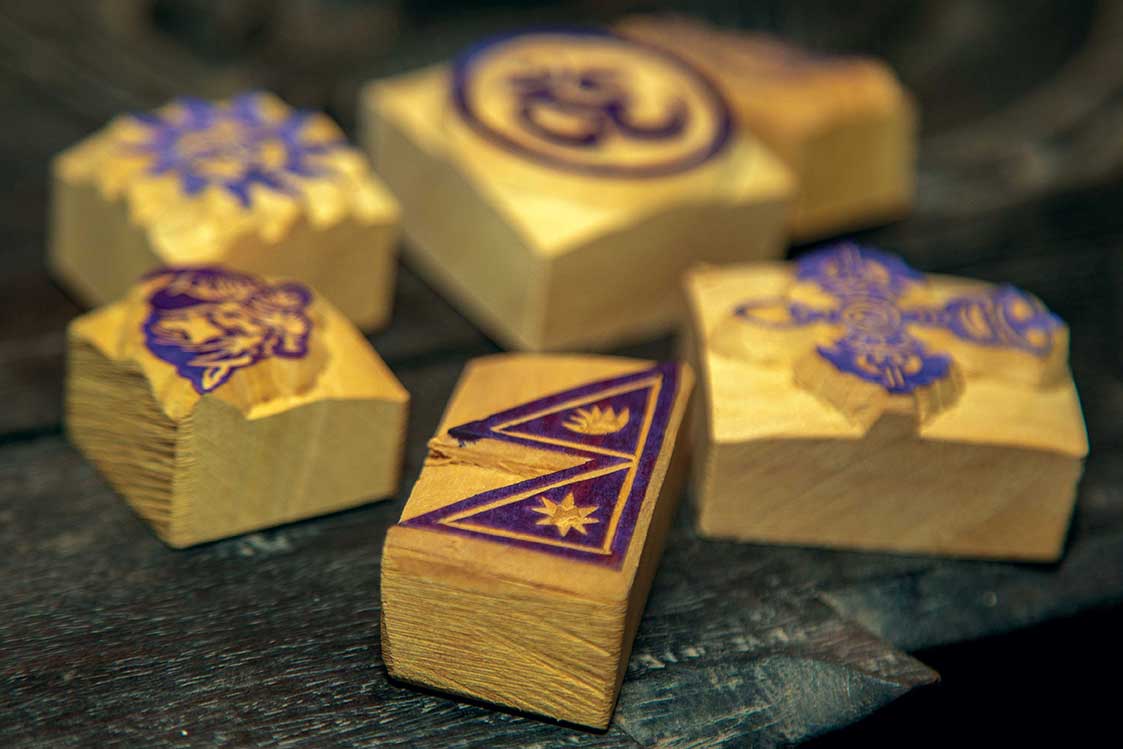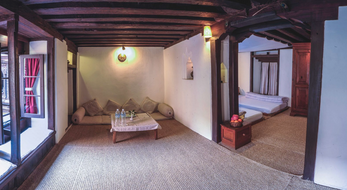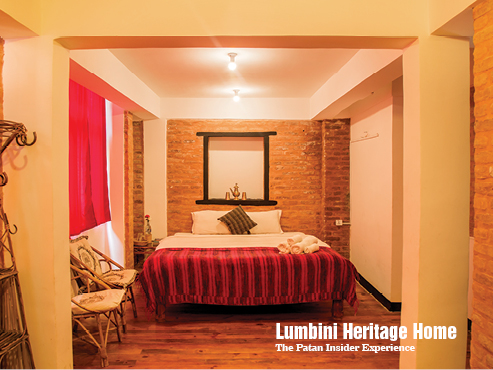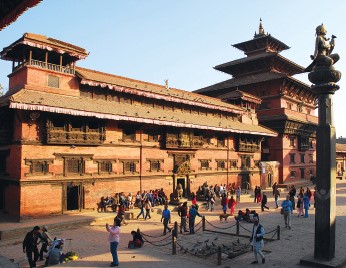Dya Khaa pasa:, traditional shops that describe the trade behavior of the past still exchange goods from food items to powerful medicinal herbs
A mix of mysterious aromas rises from a line of old shops, rushing through your nostrils as you pass by Dya Kha pasa: (pasa: is Newari for shop). Located beside the Patan Durbar Square, they function by following rules settled ages ago. Besides minor changes here and there, the shops remain the same trading ayurvedic medication and essential constituents for numerous religious rituals that Patan takes pride in. Puja items such as cotton strings, peacock feathers and thin sheets of Nepali paper (lhokta) decorate the shop’s facade.
 The items on sale at the pasa: are fascinating. Ramesh Maharjan has owned his dya kha pasa: for more than 27 years now. It’s always been a part of his life. From edible food to items required to fulfill religious duties and powerful herbal medicine – the shop sells it all. Talking of the changes during this time, Mr Maharjan said, “Dya khaa pasa: used to be the first option for many. Since people were self-dependent when it came to health issues, they would come to us for the necessary herbs and then go home and make what they needed. Doctors came into the scene much later. With modernization’s effects on society, priorities have changed. We have become the last resort now. When money can’t cure illness, people come expecting to get cured with some ‘dust’ that costs them less than five rupees.”
The items on sale at the pasa: are fascinating. Ramesh Maharjan has owned his dya kha pasa: for more than 27 years now. It’s always been a part of his life. From edible food to items required to fulfill religious duties and powerful herbal medicine – the shop sells it all. Talking of the changes during this time, Mr Maharjan said, “Dya khaa pasa: used to be the first option for many. Since people were self-dependent when it came to health issues, they would come to us for the necessary herbs and then go home and make what they needed. Doctors came into the scene much later. With modernization’s effects on society, priorities have changed. We have become the last resort now. When money can’t cure illness, people come expecting to get cured with some ‘dust’ that costs them less than five rupees.”
Sharing the history of Patan’s dya khaa shops, Mr Maharjan said, “These shops started after the Shah dynasty took over Lalitpur. Since Patan was the junction of the local population and traders, by the order of the concerned authority of that era, these dya khaa shops got located here.”
The handful of such shops cornered by heavy traffic has much in common. Most shops still use traditional weighing tools like the double sided beam balance and metal weights. The vendors at the shops are rarely seen mingling about despite being free. Instead they seem to choose to sit quietly at their seats, their eyes wandering the busy roads. Certain actions will amaze first-timers at these shops; for example, the promptness with which an attendant will produce goods when asked. It symbolises a different way of life, something that operates on a different, aged beat.











